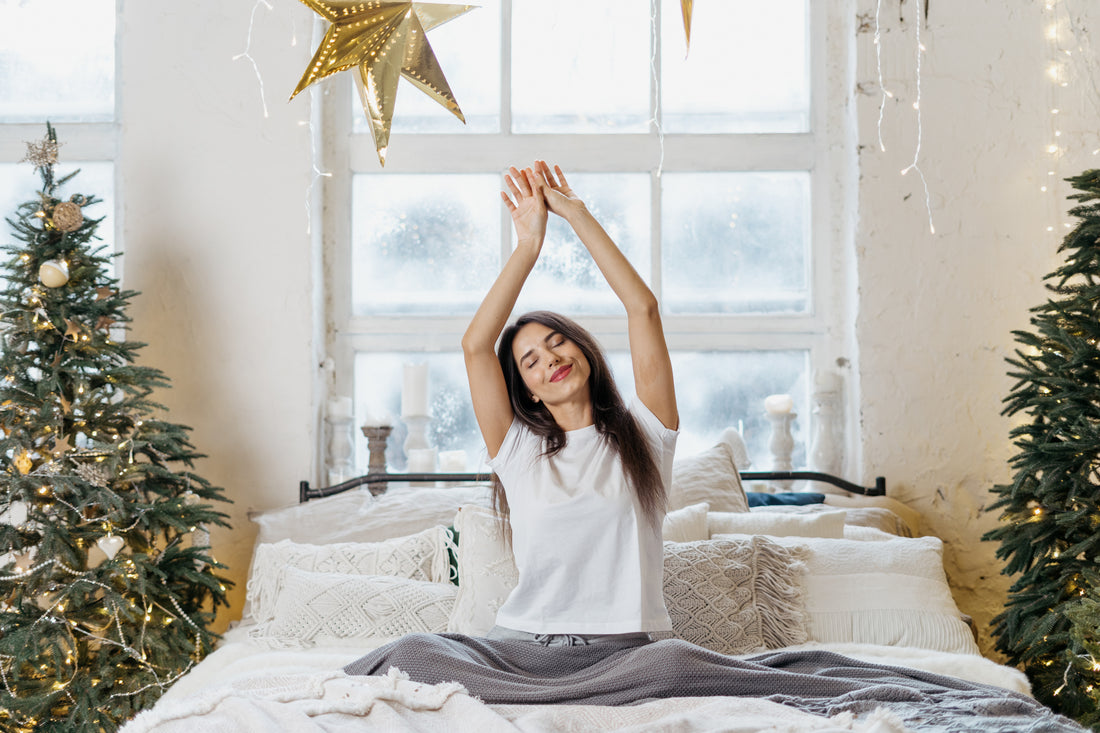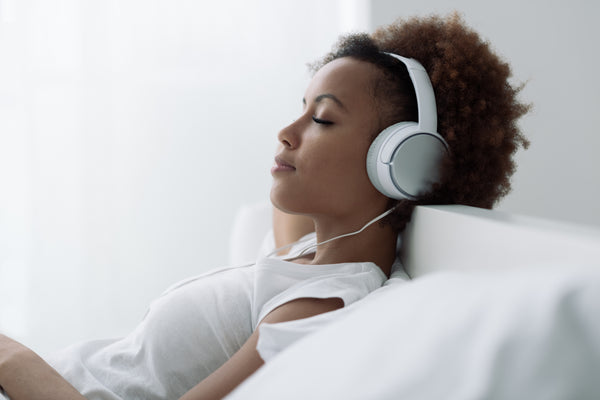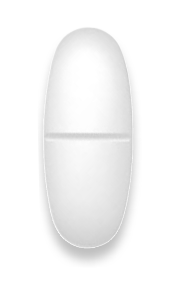14 simple tricks to wake up earlier in winter

Important points
- Getting up early in winter is a challenge for many people because the cold and dark weather creates a sleep-inducing environment.
- However, there are a number of steps you can take to overcome the difficulty of waking up and feel energized in the morning.
- As long as you maintain the discipline of getting up early, the habit of getting up at the crack of dawn will become second nature.
Getting up on a frosty winter morning can be a problem for many people. It's freezing cold and dark outside - the exact opposite of your warm and comfortable bed. It might be tempting to close your eyes for an extra fifteen minutes at the crack of dawn, even though this usually leads to oversleeping.
However, it is possible for anyone to learn how to be a morning person, even in winter. Basically, all it takes is a little hard work and a lot of patience and dedication.
Why is it so difficult to get up early in winter?
There are many reasons why most people find it difficult to get up in the early morning hours of the winter season. Much of it is due to how the time of year affects a person's sleep cycle.
First of all, the body's sleep-wake cycle is controlled by a natural hormone called melatonin, whose production is increased when we are surrounded by darkness. Since it is often pitch black when we wake up in the winter mornings, our melatonin levels are at their highest, causing us to have difficulty getting out and being active [1, 2].
Furthermore, lack of sunlight also affects a person's vitamin D levels and serotonin production. To delve a little into the biological side of things, vitamin D is known as the sunshine vitamin because our body produces it whenever our skin is exposed to direct sunlight [3, 4]. This vitamin, in turn, is responsible for regulating phosphate and calcium metabolism, which play a role in skeletal health and metabolic functions [3, 4].
Serotonin, in turn, is a type of neurotransmitter hormone produced by our brain and gut. Basically, serotonin plays a role in regulating our emotions, appetite, mood and digestive processes. A lack of serotonin can therefore increase the risk of developing anxiety and depressive disorders. As a result, with such health conditions, it would be much harder for us to leave our warm and cozy bed early in the winter morning [5].
In addition, our circadian rhythm regulates our body temperature - another factor that affects our sleep-wake cycle [6, 7]. It has been found that our core body temperature increases about two hours before waking to aid the waking process and that it continues to rise throughout the day before peaking in the early evening [6, 7]. However, during the winter season, our rooms are often cold in the mornings. This causes us to feel sleepy and want to stay in bed longer.
An unhealthy lifestyle and eating habits such as eating too many sweets, not eating fresh fruits and vegetables, and not exercising can also cause your energy levels to plummet [8, 9, 10], making it difficult to get up in the early hours of the winter morning.
Why is getting up early a good practice?
It may be a cliche to say that the early bird catches the worm, but there's a lot of truth in it. All in all, our days can sometimes get packed really quickly, so getting up early means more time for self-care and productivity. As a result, early risers are often more organized and prepared for the long day. Not to mention, getting up early keeps your body active, which means you're better able to fall asleep when it's time for bed. The result is lower stress levels, and therefore a better mood in general.
Practical tips for waking up on a winter morning
With this in mind, the question arises: What strategies can we use to become a morning person in winter when it is practically pitch black outside?
Fortunately, there are many tips you can follow during the frosty season, including the following:
Take one B・SYNC ON tablet before bedtime
B・SYNC ON is the world's first clinically tested wake-up tablet and contains natural ingredients like caffeine, vitamin B5, vitamin B12 and zinc to support and enhance your waking process. When you take a B・SYNC ON tablet before bed, the delayed-release capsule waits until you're well-rested before releasing the energizing ingredients - around seven hours later. This allows you to wake up slowly and seamlessly and stay in a great mood all day, no matter how cold or dark it is outside. Try B・SYNC ON today !
Increase your vitamin D intake
Since one of our main sources of vitamin D is sunlight, most people tend to have low vitamin D levels during the colder months. To make matters worse, several research findings have shown the link between vitamin D levels and sleep quality, so it is advisable to consume more vitamin D-rich foods such as eggs and salmon or take a vitamin D supplement to counter the difficulties of getting up in the dark.
Before going to bed, prepare everything for the next day
Picking out clothes, clearing the dishes from the night before dinner or sorting the laundry is probably the last thing you want to do on an early winter morning. Plus, knowing the huge amount of work ahead of us can make us feel tired and not want to get out of bed. That's why it's always worth preparing everything you need for the next day just before you go to bed. If you take around ten to fifteen minutes to get your tasks for the next day done, your life will be much more pleasant later on.
Stick to a specific bedtime routine
Regardless of the season, the general advice to ensure you wake up feeling energized is to stick to a routine sleep and wake schedule. This will get your body into a natural circadian rhythm, so waking up in the winter isn't a huge challenge (despite the many temptations to go back to sleep).
Create the perfect sleeping environment
Creating an optimal sleep environment is another strategy you can use to maximize the quality of your sleep and help you wake up earlier with ease. Thankfully, there are a variety of approaches to this, which can range from wearing eye masks or earplugs to aromatherapy. All in all, it's all about finding out which method works best for you to sleep through the night and feel rested the next morning.
Make sure the environment is warm when you wake up
Most people prefer to be in a warm environment rather than standing in the cold, so before you go to sleep, put a warm coat or jacket and woolen slippers next to your bed. This way, you'll have something warm to put on when you get up in the morning and can resist the urge to go back to bed.
Alternatively, you could set your heating to come on at least half an hour before you wake up. In some cases, the heating can be controlled via a mobile application. This way you can avoid waking up cold when it's time to get up.

Bring as much natural light into your room as possible
A convenient tactic to wake up naturally is to let natural sunlight into the bedroom. The problem is that there is very little sunlight during the winter season, so you should consider purchasing a sun lamp (also called a SAD lamp) to gently prepare your body for waking up. These lamps help promote a healthy sleep-wake cycle.
Make sure there is a constant flow of fresh air in your bedroom
Fresh air can stimulate your body, making you feel energized and ready to start the day. However, leaving the window open in winter is not always a good idea. That's why buying an air purifier that works quietly can be a sensible alternative to ensure you get clean air even while you sleep. In addition, air purifiers usually have a 360° airflow that distributes the clean air to all corners of the room.
Avoid pressing the snooze button
It's almost never worth sleeping five minutes longer because you'll feel much more sluggish when you finally get up. A simple but effective strategy to avoid snoozing is to put your alarm clock as far away from the bed as possible so you're forced to get up to turn it off.
Give yourself something to look forward to in the morning
It's often easier to get up and feel awake when you're focused on an upcoming event that excites you, rather than a dreaded task. To make waking up easier, set yourself something to look forward to each morning. This could be a warm cup of hot chocolate, your favorite breakfast, a refreshing shower with a special soap, or watching a new Netflix series. Whatever it is, treat yourself to something that motivates you to get out of bed.
Get active
While not everyone has the time and energy to complete a full workout routine every morning, doing a few stretches under the covers or jogging on the spot for a few minutes can help get your body moving.
Start your day with upbeat music
Nothing beats the sound of good music. If you are a lover of excellent beats, you should create a playlist of your favorite songs so that you can press the play button first thing in the morning and delight your eardrums with the sound of your favorite song.

Take a shower as soon as you get out of bed
A warm shower right after you wake up can help get your circulation going. You should also use a shower gel with an invigorating scent to help you feel more awake. Popular scents are mint, lemon or peppermint.
Drink water and coffee
Keep a full glass of water on your nightstand to drink before you get up. This can help you wake up.
Programming your coffee maker to make you a hot drink in the morning can also be a big help, as the aromatic smell of coffee paired with the sweet sound of grinding can be very satisfying. If you find it too difficult to get out of bed to have a cup of coffee, it's perfectly fine to keep a small pot next to your bed.

Final considerations
All in all, getting up early can be a challenge - especially during the colder months when the shorter days and longer nights can disrupt your body's sleep-wake cycle. These are factors that can easily tempt you to get back under the covers and sleep longer.
But you can overcome these demons! There are many strategies you can use to resist the temptation to sleep in. Perhaps the best of these is taking a B・SYNC ON tablet before bed. Make it a habit to wake up early and, over time, getting up on cold winter mornings will be a breeze.
Frequently Asked Questions (FAQs)
Why do we sleep so much in winter?
Because there is less sunlight in winter, your body produces more melatonin, a hormone that plays a role in promoting natural sleep [1, 2]. Additionally, cold temperatures cause your body to upregulate melatonin production, causing you to feel tired [1, 2].
How can you wake yourself up in winter?
There are several strategies to improve your ability to wake up in winter mornings. First of all, natural light helps to trick your brain into stopping the synthesis of melatonin, a type of sleep hormone [1, 2]. Consuming caffeinated beverages at the right time can help you feel more alert, attentive, and energized for the new day. Additionally, light physical activity like taking a short walk or doing some jumping jacks can help you wake up. Other strategies, such as planning something you look forward to, taking a warm shower as soon as you get out of bed, and making sure your alarm clock is across your room, are also simple but effective strategies to wake up early in winter.
Is it healthy to wake up early?
There are several undeniable benefits associated with waking up early. For example, many report being more productive due to the lack of distractions. Due to the increased performance, they have a higher chance of being successful compared to late risers [11, 12]. All in all, waking up early can also give individuals a better sense of order in their lives and help them feel happier and more rested.
References
https://www.ncbi.nlm.nih.gov/pmc/articles/PMC6017911/
https://www.ncbi.nlm.nih.gov/pmc/articles/PMC3047226/
https://www.nhs.uk/conditions/vitamins-and-minerals/vitamin-d/
https://www.ncbi.nlm.nih.gov/pmc/articles/PMC3897598/
https://www.pbsnc.org/blogs/science/sunlight-happiness-link/
https://www.sciencedirect.com/science/article/pii/S2468867319301804
https://www.ncbi.nlm.nih.gov/pmc/articles/PMC3427038/
https://www.ncbi.nlm.nih.gov/pmc/articles/PMC8848117/
https://www.ncbi.nlm.nih.gov/pmc/articles/PMC5922510/
https://www.ncbi.nlm.nih.gov/pmc/articles/PMC5385214/
https://www.bbc.com/worklife/article/20190213-is-waking-up-early-good-or-bad
https://hbr.org/2010/07/defend-your-research-the-early-bird-really-does-get-the-worm







